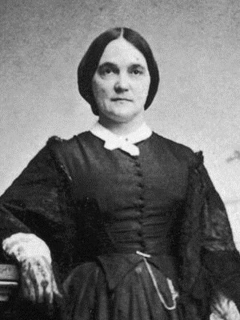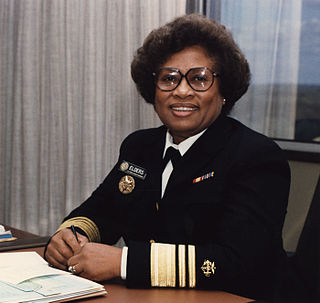A Quote by Mary Boykin Chesnut
There is no slave, after all, like a wife...Poor women, poor slaves All married women, all children and girls who live in their father's house are slaves.
Related Quotes
Young women don't want to be called feminists because it's not sexy and ah they think that their mothers and grandmothers have achieved everything they want. They don't know how poor women live, how women in rural places live, how 80 percent of women in the world are the poorest of the poor, how still there are 27 million slaves, and most of them women and girls.
The other slaves in the field never let that house slave knew - know what they were really thinking. If the house slave said, well one of these days all of us will live in the plantation, they said, uh huh. They went along with him. But if you came up to them and said, let's go, they would be gone just like that.And in, in America you have the same situation.You have the vast masses who are still slaves.
All you have to do is go back to slavery - days, and there were two types of slaves, the house slave and the field slave. The house slave was the one who believed in the master, who had confidence in the master and usually was very friendly with the master. And usually he was also used by the master to try and keep the other slaves pacified.
My father was a man of great charity towards the poor, and compassion for the sick, and also for servants; so much so, that he never could be persuaded to keep slaves, for he pitied them so much: and a slave belonging to one of his brothers being once in his house, was treated by him with as much tenderness as his own children.
In war," answered the weaver, "the strong make slaves of the weak, and in peace the rich make slaves of the poor. We must work to live, and they give us such mean wages that we die. We toil for them all day long, and they heap up gold in their coffers, and our children fade away before their time, and the faces of those we love become hard and evil. We tread out the grapes, another drinks the wine. We sow the corn, and our own board is empty. We have chains, though no eye beholds them; and are slaves, though men call us free.
One day as Father and I were returning from our walk we found the Grote Markt cordoned off by a double ring of police and soldiers. A truck was parked in front of the fish mart; into the back were climbing men, women, and children, all wearing the yellow star. . . . "Father! Those poor people!" I cried. . . . "Those poor people," Father echoed. But to my surprise I saw that he was looking at the solders now forming into ranks to march away. "I pity the poor Germans, Corrie. They have touched the apple of God's eye.
Upon the decease [of] my wife, it is my Will and desire th[at] all the Slaves which I hold in [my] own right, shall receive their free[dom] . . . . The Negroes thus bound, are (by their Masters or Mistresses) to be taught to read and write; and to be brought up to some useful occupation, agreeably to the Laws of the Commonwealth of Virginia, providing for the support of Orphan and other poor Children. And I do hereby expressly forbid the Sale, or transportation out of the said Commonwealth, of any Slave I may die possessed of, under any pretence whatsoever.
... if you're poor and ignorant, with a child, you're a slave. Meaning that you're never going to get out of it. These women are in bondage to a kind of slavery that the 13th Amendment just didn't deal with. The old master provided food, clothing and health care to the slaves because he wanted them to get up and go to work in the morning. And so on welfare: you get food, clothing and shelter--you get survival, but you can't really do anything else. You can't control your life.
The use of slave women as day workers naturally broke up or made impossible the normal Negro home, and this and the slave code led to a development of which the South was really ashamed and which it often denied, and yet perfectly evident: the raising of slaves in the Border slave states for systematic sale on the commercialized cotton plantations.





































